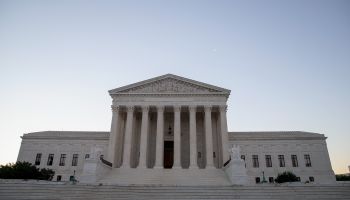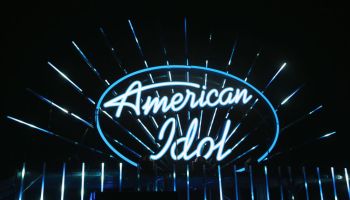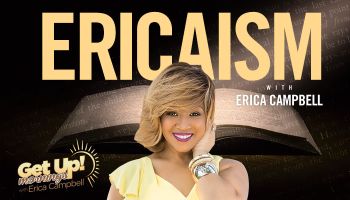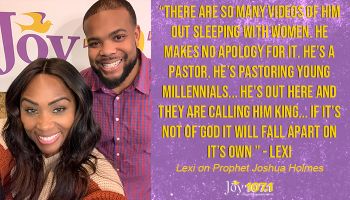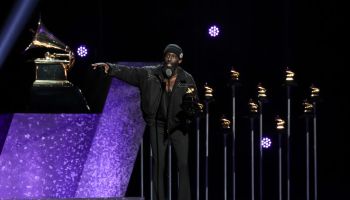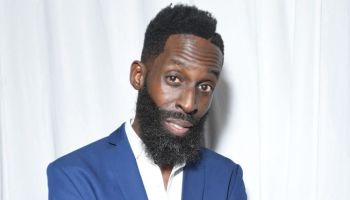UPDATED: 9:29 p.m. EST — And so it begins.
The president has nominated Brett Kavanaugh to fill the Supreme Court seat of outgoing Justice Anthony Kennedy, who was set to retire at the end of the month.
“There is no one in America more qualified for this position and no one more deserving,” President Donald trump said in announcing his selection Monday night at the White House.
Conservatives rejoiced at the selection, but some of Kavanaugh’s first words after accepting the nomination likely had Black folks on edge about what to expect if he were to be confirmed.
Kavanaugh almost immediately pointed to his mother’s past as a teacher at two largely Black high schools as supposed evidence that he would be fair and culturally sensitive in his rulings if he were to become Kennedy’s successor on the Supreme Court.
“My mother taught history at two largely African-Americans public schools so I understand the importance of equality,” he said.
Those words were all but tantamount to saying “some of my best friends are Black,” which is code to all people of color for an apparent over compensation for what could be racist tendencies.
Another possible troubling indicator: Kavanaugh once dissented in a 2011 case centered on President Barack Obama‘s Affordable Care Act, saying the national heath care law was “unprecedented and unlawful,” according to the Federalist.
Either way, because Trump chose him, Black America’s collective Spidey sense wasn’t buying it.
In an obvious case of something that was not a coincidence, Twitter reminded folks that Kavanaugh and Neil Gorsuch, Trump’s first Supreme Court pick, went to high school together.
The United States Circuit Judge of the U.S. Court of Appeals for the District of Columbia Circuit was called
While the president was busy teasing America with who he would nominate to be the next U.S. Supreme Court justice, the potential consequences of whoever he picks were becoming increasingly perilous, particularly for Black people, who have been on the losing end of recent decisions by the nine judges.
Donald Trump, channeling his inner LeBron James, was scheduled on Monday night to announce his televised decision to fill the soon-to-be vacant seat of Anthony Kennedy, who was expected to retire by the end of the month. The Associated Press reported that there were four finalists Trump was considering – federal appeals judges Brett Kavanaugh, Raymond Kethledge, Amy Coney Barrett and Thomas Hardiman – and each of them should raise red flags for Black folks.
That was especially true following a series of rulings from last month in which Justice Neil Gorsuch, Trump’s Supreme Court pick last year, proved to be the difference-maker in decisions on gerrymandering, the president’s immigration ban on travel to and from several Muslim majority countries and when it came to religion and sexuality. Chances were more than likely that Trump will nominate a like-minded judge, leaving an uncertain future for Black voters to become even murkier and setting the stage to legitimize religious persecution.
Those rulings helped show that Clarence Thomas and the Supreme Court were doing their damnedest to harm voters of color.
But that could be the tip of the conservative iceberg depending on who is chosen from the four people Trump was supposedly choosing from.
Kavanaugh once dissented in a 2011 case centered on President Barack Obama‘s Affordable Care Act, saying the national heath care law was “unprecedented and unlawful,” according to the Federalist. Kethledge has expressed written support for allowing people who have been mentally ill to own guns as well as deciding that the FBI has a right to freely collect cellphone and computer data from citizens. Barrett, who hasn’t even been a federal judge for a full year, has questionable religious ties that some suspect would lead her to side with a court opinion to overturn the historic Roe v. Wade ruling that recognized the constitutional right to abortion. And Hardiman, who was an also-ran when the president ultimately nominated Gorsuch last year, could be seen as somewhat of a nepotistic pick since, according to the AP, he “served with Trump’s sister on the 3rd U.S. Circuit Court of Appeals in Philadelphia.”
If those limited choices didn’t seem disastrous enough to an increasingly diverse America, the very realistic option that Trump could go sideways and choose someone else entirely certainly should.
Adding to the increasingly apocalyptic feeling surrounding the announcement was how quickly Trump was moving forward with filling Kennedy’s spot. If the nomination process sticks to its typical timetable of two months, Trump’s nominee could be confirmed before the mid-term elections in November, something that Democrats and civil rights leaders alike were fearing.
“For the good of the American people, we urge the president and the Senate to carefully exercise [the potential picks’] respective roles under the Constitution in light of the consequential impact of this nomination on our democracy,” the NAACP said in an urgent statement last month.
A protest led by elected, religious and civil rights leaders encouraging “civil disobedience” was planned outside of Trump’s New York City home after the president announces his nominee on Monday night, according to a press release from the National Action Network.
SEE ALSO:
Keith Ellison ‘Doesn’t Give A Damn’ About His Political Legacy As He Leaves Congress
Therese Patricia Okoumou Thought Cops Would Kill Her On The Statue Of Liberty
What Trump’s Supreme Court Nominee Means For The Future Of Black America was originally published on newsone.com









